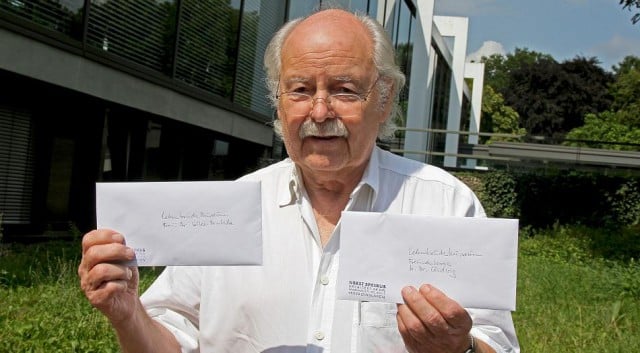
Collector and noted architect Horst Spankus has requested that Duisburg’s Lehmbruck Museum return all artworks he has lent to the institution, the Rheinische Post reports. Spankus’ decision comes in response to Duisburg mayor Soren Link’s decree that a new piece by renowned installation artist Gregor Schneider would not be installed in the institution.
The 84-year-old collector also pulled his support from the museum’s patronage group, the Freundeskreis des Lehmbruck-Museums, which he had supported for many years. He delivered both notices by letter to the museum on Wednesday.
As artnet News previously reported, early last month the mayor pulled Schneider’s work, Totlast (Deadweight) (2014), due to concerns that it might cause panic and claustrophobia following the Love Parade disaster nearly four years ago. The work was scheduled to make its debut at the city’s Lehmbruck Museum on August 15th as part of the Ruhrtriennale.
The Love Parade tragedy, which took place on July 24, 2010 saw 21 people lose their lives and over 500 more injured when a tunnel and ramp that served as the only access-point for the Love Parade electronic music festival became overcrowded. Schneider’s installation would have invited viewers to climb through a series of narrow metal tubes.
At the time Ruhrtriennale director Heiner Goebbels called the move to cancel the work, “an affront against artistic freedom,” in a statement to the dpa. Several weeks after the decision, the Ruhrtriennale announced that Schneider would still participate, installing a different, newly-concieved work, Kunstmuseum (2014), at the Kunstmuseum Bochum.
Among the works that Spankus has requested be returned to his private collection is Wolf Vostell’s Der Lippenstiftbomber (1968), which was scheduled to go on view on September 11th as part of the museum’s exhibition Kunst gegen den Krieg (Taking a Stand Against the War). Works in the Lehmbruck Museum’s current exhibition Hans in Luck–Art & Capital by Katharina Fritsch and Hans-Peter Feldmann are also to be returned, according to the report. That exhibition runs through August 17th.
Speaking to the Rheinische Post, Spankus said that it was, “outrageous and a violation of the law for the mayor to presume to decide what art should be shown and what should not.” He went as far as to obliquely compare the move to artistic censorship that occurred before World War Two. “I think Link doesn’t fully understand what he’s done here,” Spankus added.